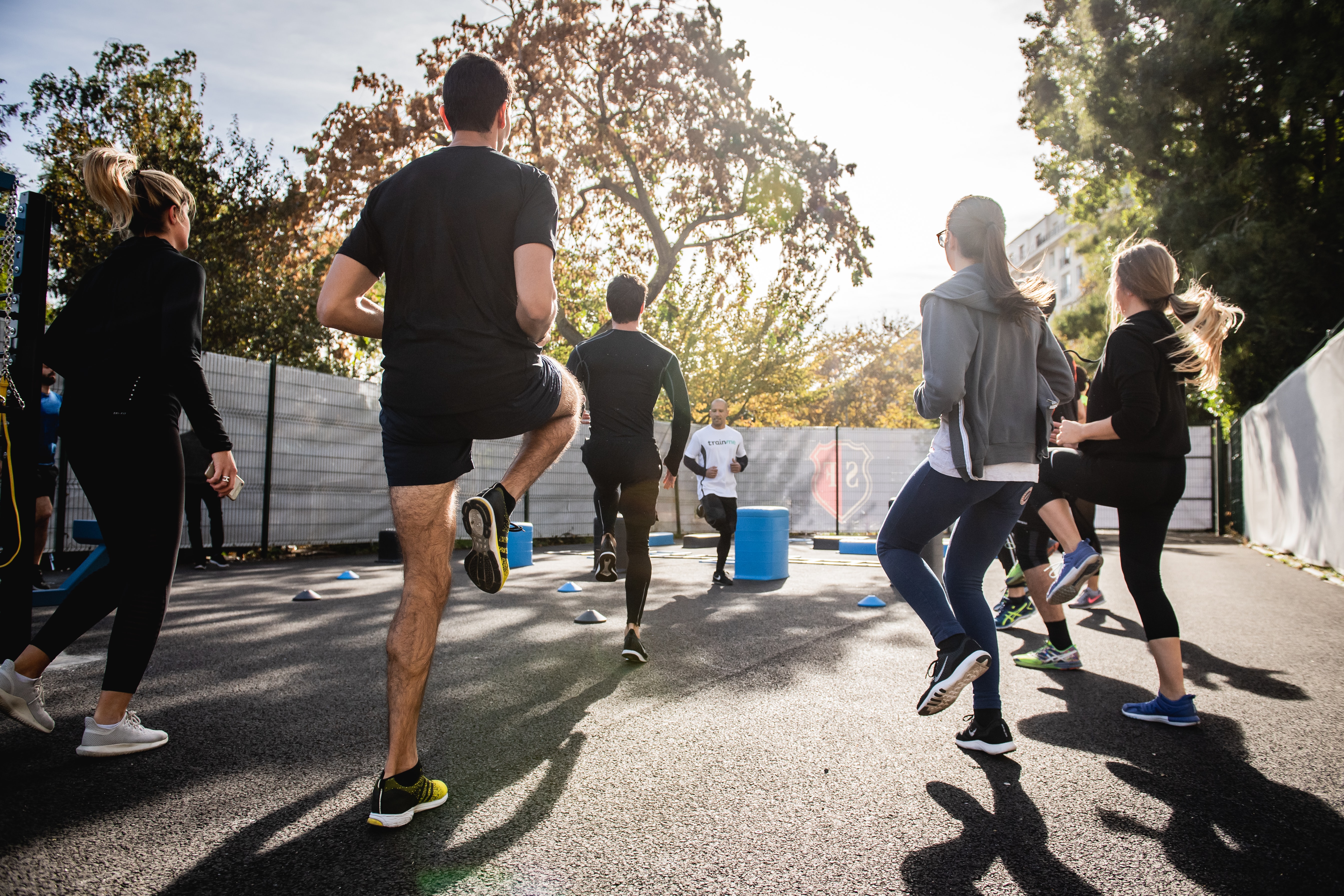According to the Anxiety & Depression Association of America (ADAA), anxiety disorders are the most common mental illnesses in the US. Approximately 40 million adults (ages 18+) are affected with an anxiety disorder annually.
Despite anxiety disorders being treatable, the ADAA claims only 36.9% of people suffering from anxiety will ever receive treatment.
Anxiety-busting benefits of exercise
It’s been proven that regular exercise can reduce many symptoms of depression and is an excellent way for people with anxiety-related conditions (for example, PTSD, panic disorder, etc.) to release pent-up tension, fear, and worry healthily and productively.
Exercise can also lessen the body’s sensitivity to anxiety, effectively reducing panic attacks’ frequency and intensity in several cases.
-
Stress hormones
Anxiety disorders arise when the body’s response to stress (or perceived stress) is disproportionate to the threat that’s actually being posed.
One of the primary contributors to this chemical overreaction to stimulus is stress hormones, such as cortisol. However, during exercise, the body produces considerably less of this hormone, reducing the presence of stress hormones in your system.
Exercise also increases the body’s “feel-good” chemicals – endorphins. This gives your mood a natural boost and is one of the critical reasons exercise is so effective at combatting depressive emotions.
-
Distraction
While you’re focusing on a workout, the body and brain have less time to concentrate on stress or anxiety. This is one of the reasons mindful fitness is so popular these days. By focusing on your breath and physical movement, you can enjoy the experience of a “zen-like state” while you exercise, rather than worrying about things outside of your control.
-
Confidence
Whether it’s a boost to your self-esteem as you lose weight, build muscle, and tone your body, or just the feeling of a job well done as you beat your PB, exercise is an invaluable way to build confidence in every area of your life.
I’m sure we all remember when Marge Simpson discovered strength training, and her newfound confidence allowed her to beat the agoraphobia she suffered from after being mugged.
Being physically fitter provides a powerful boost to your confidence and self-esteem, allowing you to feel more prepared to deal with whatever is causing you to feel anxious.
-
Socializing
Anxiety disorders often come hand-in-hand with withdrawing from society. But when you feel the least like socializing is often when you need people around the most… Humans are social beings, after all!
Exercise is an excellent excuse to join people in a social environment without feeling overwhelmed. Whether you’re participating in an exercise class or playing team sports, you’ll be amazed how getting fitter with other people can offer a double-whammy of stress-reducing power.
-
Physical health = mental health
Anyone suffering from an anxiety disorder will be aware of how this can frequently result in poor physical health. This goes the other way, too, as illness can also cause stress.
By improving your physical health, you’ll likely find that your mental health also improves.
This can be short-term benefits – strengthening immunity to colds, flu, and other minor illnesses – and more long-term as physically healthy people are more likely to live longer and happier lives.
Best exercises for reducing anxiety
When it comes to reducing anxiety using exercise, pretty much any physical activity can provide stress-busting properties. You can find many workout ideas for different muscle groups on Total Shape. Still, some workouts may be more effective than others at offering a variety of benefits to the anxious mind:
-
Yoga or Thai Chi
Yoga and Thai Chi both utilize slow, controlled movements with a focus on the breath. This makes them effectively “moving meditations,” which are incredibly beneficial for anxiety sufferers both in body and mind.
-
Aerobic / Cardiovascular exercise
Cardio is well established as an effective “treatment” for mental health issues. Not only do they get the heart pumping, produce plenty of endorphins, and make you physically fitter, but many aerobic exercises take place outdoors – running, cycling, and even swimming – so you get a dose of vitamin D… Another great mood-booster!
-
Strength training
There has been slightly less research on the effects of strength training and exercise, but there are multiple studies and personal anecdotes to show a link between working out with weights or resistance bands (like the ones from Victorem) and fewer anxiety symptoms.
As we noted in the Simpsons episode, physically building muscles can have dramatic effects on self-confidence. Plus, there are life-lessons to learn with strength training that can be invaluable in dealing with anxiety, such as slowing down, breathing through your problems, and the value of perseverance.
Getting the most out of exercise for anxiety
While most fitness coaches recommend a minimum of 30 minutes of moderate-intensity exercise every day, studies have shown that individuals can receive plenty of anxiety-busting power from even short instances of exercise.
Yes, longer and more vigorous exercises are likely to offer more significant results. However, even just 5-10 minutes of exercise can affect mental health, so not having time to workout is definitely not an excuse!
